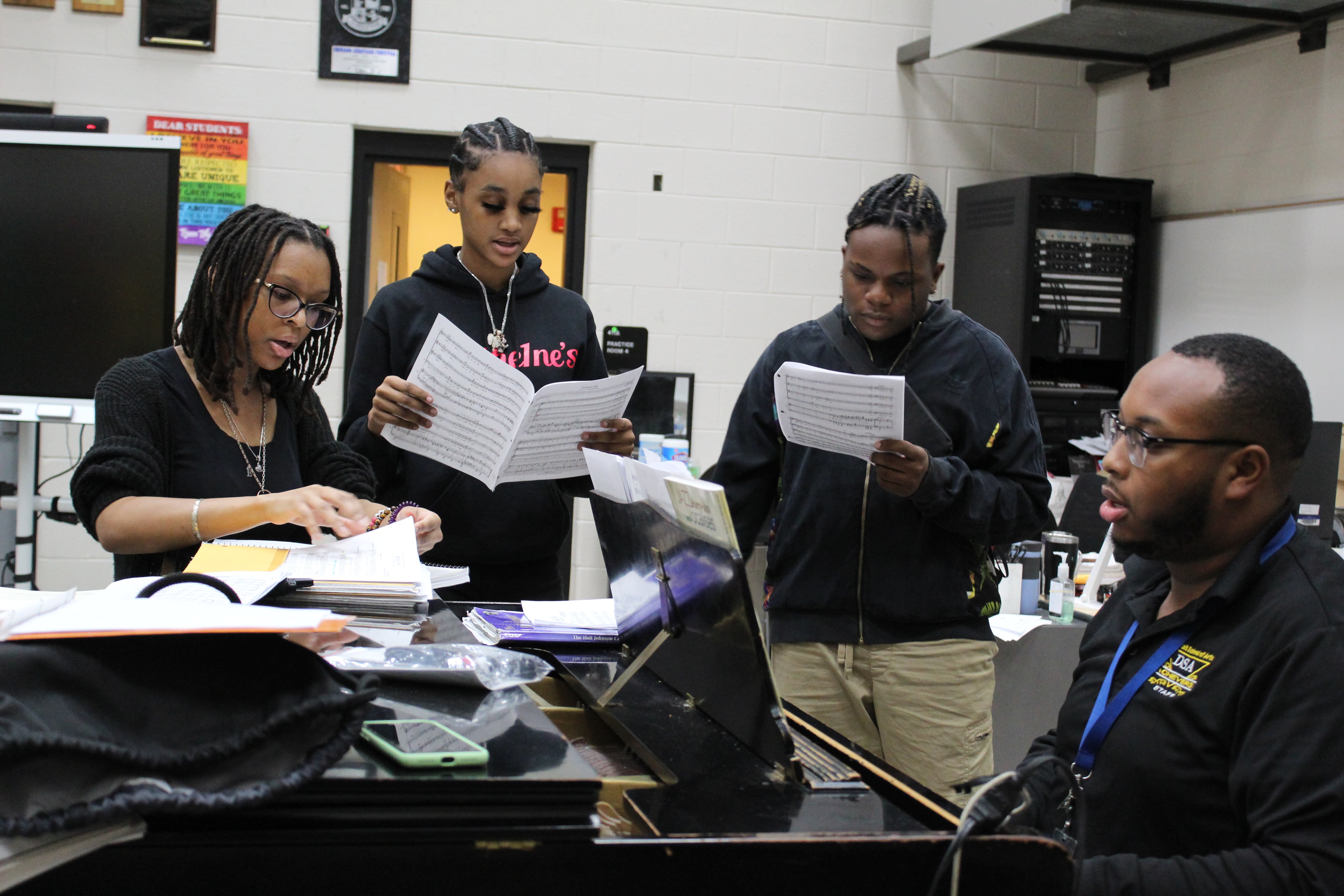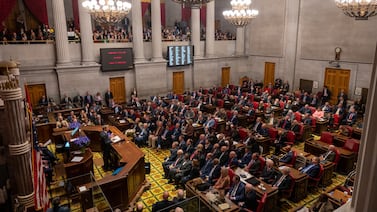Performance evaluations would no longer be the deciding factor in salary increases for newly hired employees in the Detroit school district, under proposed legislation that seeks to remove a distinction between recent and earlier hires and make the criteria uniform across Michigan.
A bill introduced in the state Senate last month would remove provisions in the Revised School Code that say all teachers and staff in the Detroit Public Schools Community District hired after September 2019 must have their compensation based primarily on job performance, rather than seniority or educational credentials.
Supporters of the bill say that removing the language would make it easier for the Detroit Federation of Teachers to bargain for all of its members — newer hires and veterans — equally, and bring Detroit’s district in line with all other districts in the state.
For those districts, the Revised School Code says job performance should be considered a “significant” factor in determining staff pay, but doesn’t specify “primary” factor.
“This bill simply seeks to address an inconsistency in the law, where all educators across the state are able to collectively bargain certain topics except for, right now, educators in the Detroit Public Schools Community District,” said state Sen. Stephanie Chang, the bill’s sponsor, at a Senate Education Committee hearing on Tuesday.
The proposed change “doesn’t necessarily lessen, or de-emphasize in any way, performance,” said Chang, a Democrat from Detroit. “It simply just is saying we’ve got to consider other factors.”
The current law effectively says that for teachers hired after Sept. 1, 2019, DPSCD may not use the length of service or achievement of an advanced degree as a factor in determining their pay, except for teachers with a secondary-level teaching certificate or an advanced degree in elementary education.
The stricter language referring to Detroit’s district was added by a then-Republican-led Legislature in a 2016 package of bills that sought to address the debt crisis facing Detroit Public Schools, and ultimately created the Detroit Public Schools Community District. Teachers union leaders opposed the bills at the time.
Lakia Wilson-Lumpkins, president of the Detroit Federation of Teachers, said the current law sets a different standard for new hires compared with those hired before September 2019, regardless of how much experience they have.
For the earlier hires, “the union negotiated salary schedule is based upon time,” she said. “We do have some merit-based compensation, however moving on the salary scale is not dependent on merit.”
But some lawmakers say student academic performance and teacher effectiveness should remain a priority in districts like Detroit that have long struggled academically.
“When disadvantaged students are less likely to be taught by highly effective teachers, why should the teacher’s ability to ensure adequate student academic growth not be the No. 1, the primary factor, in determining the teacher’s effectiveness?” asked Sen. Ruth Johnson, a Republican from Holly, during the committee hearing.
Teachers unions and other opponents of the current law argue that current measures of teacher job performance rely too heavily on student scores on standardized tests. Their Democratic allies in the Legislature are working on bills to delink student scores from teacher evaluations.
Wilson-Lumpkins told Chalkbeat that the current provision has become a “deterrent” for current and prospective district teachers.
“This legislation is not only causing educators to choose other districts, but it is causing the new hires who have come in and learned about this legislation on the back end … to consider leaving,” Wilson-Lumpkins said. “And the children in Detroit deserve to have quality education the same as all the children across the state of Michigan.”
Nastassia Szpaichler, a middle school special ed teacher at DPSCD, said in a statement read to the Senate Education Committee that she found out about the Revised School Code provision only after she was hired.
The performance-based evaluation puts undue stress on new hires, she said.
“When I was hired fresh out of college, Detroit was offering me the highest pay for first year teachers at $51,071,” Szpaichler said.
“What I did learn was that my compensation would not be based on my years of experience that I gained, which is what literally every other district does, but based on my job performance and my job accomplishments,” she said. “This truly was frightening to me.”
DPSCD Superintendent Nikolai Vitti did not respond to a request for comment about the Senate bill, but he has previously argued that Detroit teachers should be among the highest-paid educators in the state, and he has made increasing pay a priority — especially for newly hired teachers. Their starting salary of roughly $51,000 is now among the highest in the region.
The DFT is currently negotiating a new contract with the district, Wilson-Lumpkins said, with a focus on its union members affected by the district’s budget cuts, including kindergarten paraprofessionals, school culture facilitators, and college transition advisers.
The last contract negotiations, ahead of the 2021-22 school year, resulted in an annual 4% salary increase across the board for Detroit educators, with additional raises for veteran and special education teachers.
Ethan Bakuli is a reporter for Chalkbeat Detroit covering Detroit Public Schools Community District. Contact Ethan at ebakuli@chalkbeat.org.






